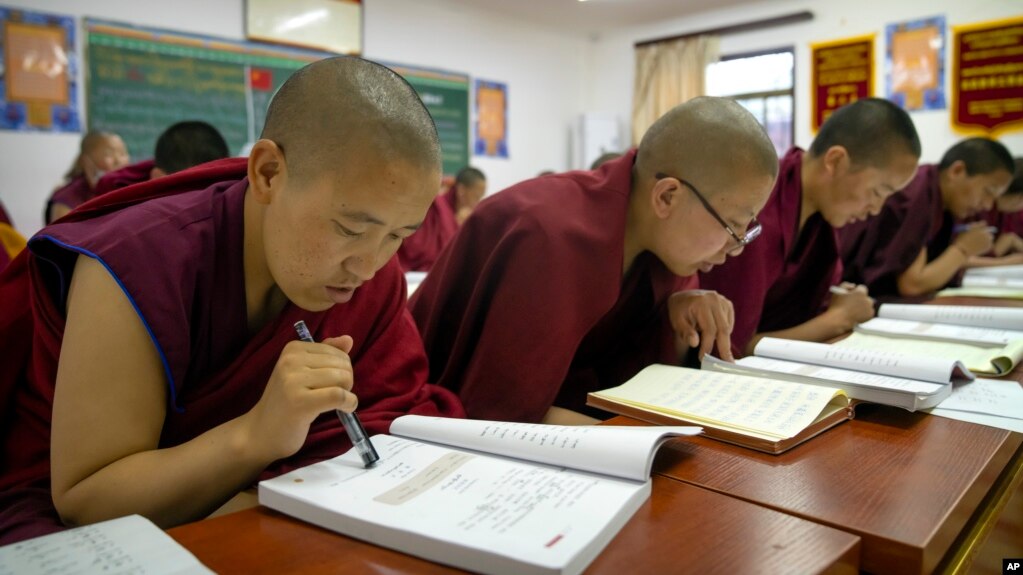China has launched a campaign to get 85 percent of its citizens using Mandarin, the country’s national language, by 2025.
The Chinese government recently issued an order calling for the campaign.
The move is likely to put threatened dialects and languages in the country under greater pressure. These include Cantonese and Hokkien, as well as the minority languages of Tibetan, Mongolian and Uyghur.
The order said that the use of Mandarin, known in Chinese as “putonghua” or the “common tongue,” remains “unbalanced and inadequate.” The government said the national language needs to be improved to meet the demands of a modern economy.
In the past, critics have protested changes to the education system as well as employment requirements that have lessened the importance of minority languages. The critics have said such efforts appear to be an attempt to get rid of cultures that do not fit in with the majority Han Chinese ethnic group.

Tibetan Buddhist nuns read from their textbooks as they attend a Chinese language learning class at the Tibetan Buddhist College near Lhasa in western China’s Tibet Autonomous Region, Monday, May 31, 2021. (AP Photo/Mark Schiefelbein)
Along with the 2025 goal, the government’s policy aims to make Mandarin mostly universal by 2035. This means it seeks to include people in rural areas as well as ethnic minorities.
One protest over government attempts to increase the use of Mandarin was held last year in Inner Mongolia. The protest came after officials replaced the Mongolian language with Mandarin as the official language of instruction.
China’s ruling Communist Party has denounced such protests as a form of separatism and moved to end them quickly.
The language campaign includes legal requirements. A document explaining the policy demanded strengthened supervision to “ensure that the national common spoken and written language is used as the official language of government agencies.” The document added that Mandarin should also be used “as the basic language of schools, news and publications, radio, film and television, public services and other fields.”
The policy also calls on officials to “enhance the international status and influence of Chinese” in education, international organizations and at worldwide gatherings.
The Chinese government has sought to increase the teaching of Mandarin through its worldwide network of Confucius Institutes. Critics have denounced the efforts as an attempt to push the party’s policies and block discussion of sensitive subjects, such as China’s human rights record.
I’m Bryan Lynn.
The Associated Press reported this story. Bryan Lynn adapted the report for VOA Learning English. Ashley Thompson was the editor.
We want to hear from you. Write to us in the Comments section, and visit WWW.VOA-STORY.COM
_________________________________________________
Words in This Story
dialect – n. a form of language people speak in a particular part of a country
inadequate – adj. not good enough or too low in quality
replace – v. to start using another thing instead of the thing currently being used
conformity – n. behavior that is the same as the way that most other people behave
enhance – v. to improve something
status – n. the position you have in relation to other people
institute – n. an organization where people do a particular kind of scientific, educational or social work